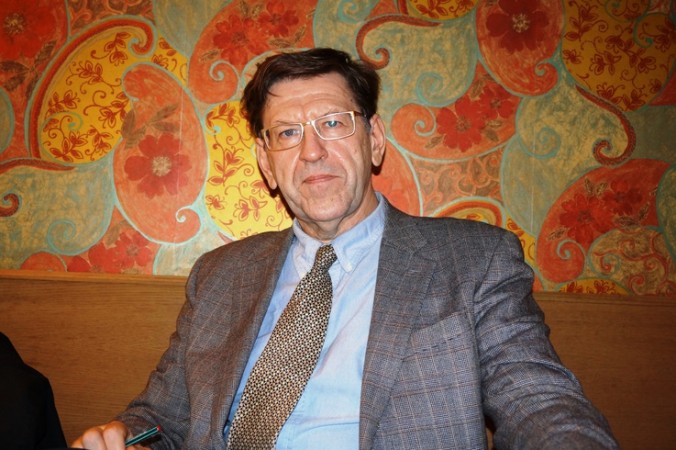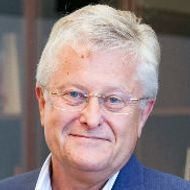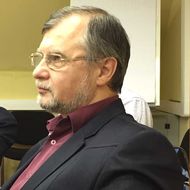- A
- A
- A
- ABC
- ABC
- ABC
- А
- А
- А
- А
- А
- HSE University
- Faculties
- Faculty of Social Sciences
- School of Political Science
- News
- Andrey Medushevskiy: Without reforms political development can be stopped by abortive restoration
3 Krivokolenny Pereulok, Moscow, 103070.
Phones:
8 (495) 772-95-90 *22833,
8 (495) 772-95-90 *22448
Fax: 8 (495) 772-95-90 *12556
Email: politfac@hse.ru
Washington: Free Russia, 2018.
Petrov N., Hale H. E., Lipman M.
Russian Politics. 2019. Vol. 4. No. 2. P. 168-195.
In bk.: Oxford Research Encyclopedia of Politics (Living Edition). Oxford University Press. P. 1-20.
Sorokina A., Maximenkova M., Kasamara V.
Political Science. PS. Высшая школа экономики, 2019. No. 71.

Andrey Medushevskiy: Without reforms political development can be stopped by abortive restoration

Transitional constitutionalism remains the subject of intensive political controversies. A conflict between the new legal regulation and the existing social reality can be settled in favor of either the former via constitutionalization or the latter via reconstitutionalization. The quest for the rationality of law replaces the search for its efficiency. Therefore, constitutional revolutions are followed by constitutional counter-revolutions or reconstitutionalization which re-enforce the legal norms or practices preceding the newly adopted constitution. Thus, due to the difficulties of constitutionalism, an unprepared society (where the constitution lacks grass-root support, only elite groups are involved in politics, constitutional norms are not protected by courts, and adequate administrative reform is needed) might encounter constitutional restoration occurring directly or indirectly, in one of the formal or informal ways.
The dysfunctions of the Russian constitutionalism are represented over all main principles (pluralism, separation of powers, federalism, independence of justice, the guarantees of political rights and freedoms), cover all zones of constitutional practices (legislation, constitutional justice, administrative activity), but demonstrates the highest level of rate in institutional and informal practices. The overlapping character and inter-connection of constitutional deviances over different principles and zones of practices makes it possible to speak about their cumulative effect.
As a result of the research project, realized recently under prof. Medushevskiy guidance, it was proposed to fulfill a complex of the first-rate targets which according to the expert pool opinion are at the same time necessary and realizable in a short-time perspective They could be divided in three main groups concerning the policy of law, mechanisms of separation of powers and institutional functioning (Medushevskiy A.N. (Ed.). Constitutional Principles and Ways of Implementation. Moscow, ILPP, 2014).
In a framework of the thirst group of recommendations it was proposed to deliberate constitutional deviances not as a combination of separate events but as a structural problem of the Russian constitutionalism. In a sphere of public law it is important to overcome the logic of double standards in interpretation of pluralism and to reject the undeclared existence of special reservations for executive power making its free from constitutional control; to change the policy of law in the direction of the authentic functional implementation of the basic constitutional principles; to bridge the gap between formal and informal practices and differentiate the informal practices for the elimination of their anti-constitutional substrate especially in the evidence of their role in the growth of constitutional deviances over all principles.
In a framework of the second group of recommendations it was proposed to rethink the dominant doctrine of the separation of powers principle treatment, which in reality bind its functional realization with the predominant role of the supra-arbiter – the presidential power; to make radical reinterpretation of the existing treatment of the federalism principle which actually presumes the predominance of the centralist tendency. The important target of constitutional modernization is to de-bureaucratize the judicial system and exclude legal norms and institutional shortages which created the special judicial bureaucracy (nominated court chairmen) monopolized in fact the decision-making process in courts and justices professional community.
In a framework of the third group of recommendations it was proposed to undertake the legal reforms capable to stimulate the real multiparty competition and substantive guarantees of political rights and freedoms of the citizens. The target of these reforms should be the full-fledged implementation of the constitutional principles – protection of the freedom of speech and the abolition of informal censorship, implementation of norms on the right of meetings and demonstrations and constitutional guarantees for the activity of political opposition from their unconstitutional deformations.
The essence of presented recommendations resumes in the proposal to change the policy of law in the area of the constitutional principles implementation towards the fulfillment of the real political competition, separation of powers and independent judicial control, to find clear and reasonable answer to this challenge.
(See more: Medushevskiy A.N. Political Writings: Law and Power in the Period of Social Transformations. Moscow: Centre of Humanitarian Initiatives, 2015).
- About
- About
- Key Figures & Facts
- Sustainability at HSE University
- Faculties & Departments
- International Partnerships
- Faculty & Staff
- HSE Buildings
- Public Enquiries
- Studies
- Admissions
- Programme Catalogue
- Undergraduate
- Graduate
- Exchange Programmes
- Summer Schools
- Semester in Moscow
- Business Internship
-
https://elearning.hse.ru/en/mooc/
Massive Open Online Courses
-
https://www.hse.ru/en/visual/
HSE Site for the Visually Impaired
-
http://5top100.com/
Russian Academic Excellence Project 5-100
- © HSE University 1993–2025 Contacts Copyright Privacy Policy Site Map
- Edit

